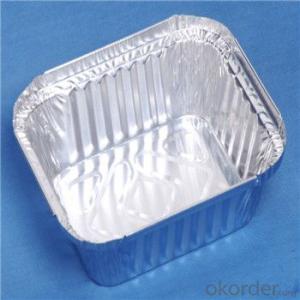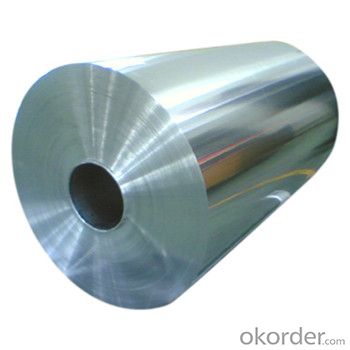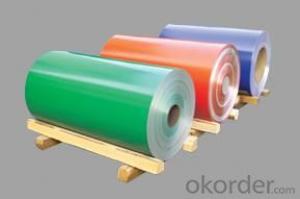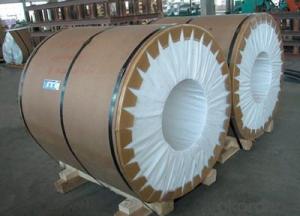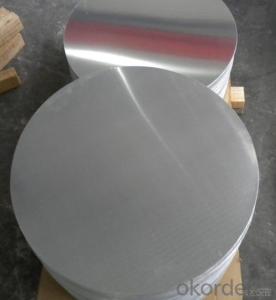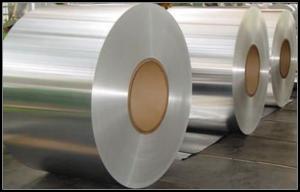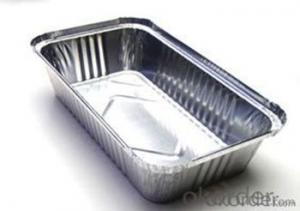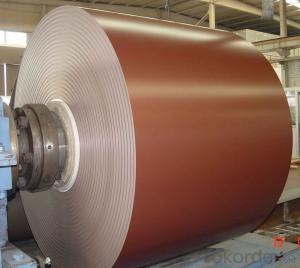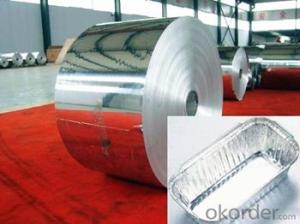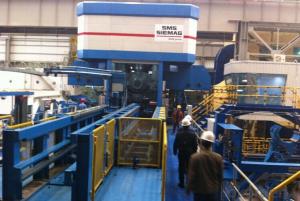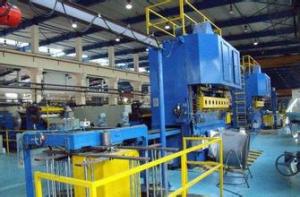Hastings Aluminum Coil Stock - Aluminum Foil for Container with Competitive Price in Roll
- Loading Port:
- China main port
- Payment Terms:
- TT OR LC
- Min Order Qty:
- 5 m.t.
- Supply Capability:
- 5000 m.t./month
OKorder Service Pledge
OKorder Financial Service
You Might Also Like
Specification
1. Description of Aluminum Foil For Container With Competitive Price In Roll
| Alloy No. | Thickness (mm) | Width (mm) | Temper | |
| A1145,A1235,A8011 Household Foil | 0.005-0.2 | 20-1700 | O,H14,H18,H19,H24 | |
| A3003,A8011 Semi Rigid Container Foil | 0.005-0.2 | 20-1700 | O,H14,H18,H19,H24 | |
| A8011,A8021 Pharmaceutical Foil | 0.005-0.2 | 20-1700 | O,H14,H18,H19,H24 | |
| A8011 Foil Label | 0.005-0.2 | 20-1700 | O,H14,H18,H19,H24 | |
| A1145,A1100,A1235,A8001 Fexible Packing Foil | 0.005-0.2 | 20-1700 | O,H14,H18,H19,H24 | |
| ID | 76mm,152mm,200mm,300mm | |||
| Packing : Export wooden case | ||||
| Standards:ASTM-B209. EN573-1, GB/T3880.1-2006 | ||||
| Quality of material: totally free from defects like white rust, oil patches, roll marks, edge damage, camber, dents, holes, break lines, scratches and free from coil set | ||||
2. Application of Aluminum Foil For Container With Competitive Price In Roll
Mainly used in package for food,drinking,cigarette,Pharmaceutical,photograph,daily necessities,power capacitor,construction,auto,boat,celling,lable,etc
3. Feature of Aluminum Foil For Container With Competitive Price In Roll
Aluminium foil is available in a variety of formats. In addition to a range of widths and lengths there are textured versions and ready-cut sheets, making it easy to use without unreeling and tearing. ‘Non-stick’ foil can solve many problems, such as baked-on food. Another special foil is black on one side, which transfers radiant heat more efficiently from the black side, making it ideal for roasting.
Most households are used to having aluminium foil in the home. It has become an essential part of modern household convenience – for cooking, reducing cleaning chores in the kitchen and for its many uses around the home, garden or workshop. In commercial kitchens too – restaurants, canteens, schools and hospitals, etc.
4. Certificate:
SGS and ROHS(if client request, paid by client), MTC(plant provided), Certificate of Origin(FORM A, FORM E, CO), Bureau Veritas and SGS (if client request, paid by client), CIQS certificate
5. Image of Aluminum Foil For Container With Competitive Price In Roll
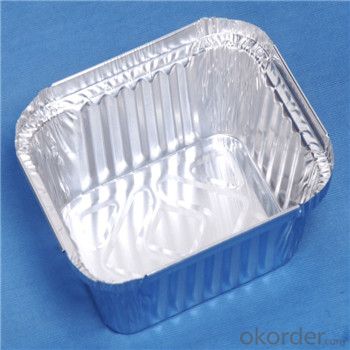
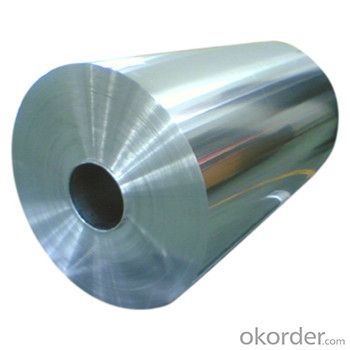
6. FAQ
1) What is the delivery time?
Dpends on actual order, around 20 days
2) What is the QC system:
We have QC staff of 20 persons and advanced equipment, each production is with MTC traced from Aluminum ingot lot.
3) What market do you mainly sell to?
Australia, America, Asia, Middle East, Western Europe, Africa etc
- Q: Which companies will use aluminum sheet and coil?
- Plants to make auto parts such as exhaust pipe thermal baffle, muffler thermal baffle and front thermal baffle.
- Q: Can aluminum coils be used in low-friction applications?
- Yes, aluminum coils can be used in low-friction applications. Aluminum is a lightweight and corrosion-resistant material that has excellent thermal conductivity. These properties make it suitable for various applications where low-friction is desired. In industries such as automotive, aerospace, and HVAC systems, aluminum coils are often used in heat exchangers, evaporators, condensers, and cooling coils. These coils are designed to efficiently transfer heat, while minimizing friction and energy loss. Additionally, aluminum coils can be used in electrical motors, generators, and transformers, where low friction is essential for smooth operation and reduced energy consumption. The lightweight nature of aluminum also helps to reduce the overall weight of the system, leading to improved efficiency. Furthermore, aluminum coils can be utilized in various types of machinery and equipment that require low friction, such as conveyor systems, sliding mechanisms, and bearings. Aluminum's low coefficient of friction allows for smooth and efficient movement, minimizing wear and tear on the components. Overall, aluminum coils are a versatile solution for low-friction applications due to their lightweight, corrosion-resistant, and thermally conductive properties. Their use can lead to improved energy efficiency, reduced maintenance costs, and enhanced performance in a wide range of industries.
- Q: Can aluminum coils be used in the production of automotive body panels?
- Automotive body panels can indeed utilize aluminum coils. This material, being lightweight and extremely malleable, is an excellent option for automotive purposes. It strikes a fine equilibrium between strength and weight, thereby enhancing fuel efficiency and overall vehicle performance. Furthermore, aluminum boasts exceptional resistance to corrosion, a vital characteristic for body panels enduring harsh environmental conditions. The popularity of incorporating aluminum coils in the production of automotive body panels has been steadily rising as automakers endeavor to lessen vehicle weight and enhance sustainability.
- Q: Can aluminum coils be used for signage and display applications?
- Signage and display applications can utilize aluminum coils effectively. Aluminum, being a versatile and lightweight material, finds extensive usage in the signage industry. The ability to easily shape and resize aluminum coils makes them suitable for various signage and display purposes. When it comes to outdoor signs, such as billboards, building signs, and traffic signs, aluminum coils are commonly employed due to their exceptional resistance to weather and durability. They can endure harsh weather conditions like rain, snow, and UV exposure without undergoing rusting or fading. This quality makes them a reliable option for signage with long-lasting effects. Moreover, aluminum coils can be coated with various finishes like paint or powder coating to enhance their appearance and provide added protection against corrosion. This enables customization and branding opportunities, making aluminum coils appropriate for both functional and decorative signage. Regarding display applications, aluminum coils can be utilized to create exhibition stands, trade show displays, retail displays, and other promotional materials. Their lightweight nature facilitates easy transport, assembly, and disassembly, making them advantageous for portable displays. Additionally, aluminum coils can be easily printed on or laminated, enabling the incorporation of graphics and visuals to capture attention and convey messages effectively. All in all, aluminum coils are a versatile and resilient material suitable for a wide array of signage and display applications. Their ability to withstand weather, customizable finishes, and lightweight properties contribute to their popularity in the industry.
- Q: Can aluminum coils be used in water treatment plants?
- Yes, aluminum coils can be used in water treatment plants. Aluminum is a commonly used material in various water treatment processes, such as filtration, sedimentation, and coagulation. It is known for its corrosion resistance and durability, making it suitable for handling water and various chemicals commonly used in treatment plants.
- Q: Can aluminum coils be used in the production of cryogenic storage tanks?
- Cryogenic storage tanks can incorporate aluminum coils, as aluminum is a suitable material for such purposes. This is due to its low density, high thermal conductivity, and excellent resistance to corrosion. These attributes make it an excellent choice for the storage and transportation of cryogenic liquids like liquid nitrogen, oxygen, and argon. Aluminum coils can be utilized to construct the internal shell of the tank, which offers a lightweight and durable solution. Moreover, aluminum is highly malleable, enabling the creation of intricate tank shapes and designs. However, it is crucial to consider that aluminum has a higher coefficient of thermal expansion compared to materials such as stainless steel. Therefore, adequate design measures must be implemented to accommodate thermal contraction and expansion during cryogenic operations.
- Q: How do aluminum coils contribute to improved building aesthetics?
- Aluminum coils contribute to improved building aesthetics in several ways. Firstly, aluminum coils can be used to create sleek and modern exterior finishes for buildings. The coils can be coated with various finishes such as brushed, anodized, or painted, allowing for a wide range of design possibilities. This versatility in finishes helps architects and designers achieve their desired aesthetic vision for the building. Additionally, aluminum coils can be easily shaped and formed into various profiles, giving buildings a unique and customized look. The coils can be bent, cut, or perforated to create intricate patterns or architectural details, enhancing the overall aesthetics of the structure. This flexibility in shaping allows for creative and visually appealing designs that can make a building stand out. Moreover, aluminum coils are lightweight yet durable, making them an ideal choice for cladding systems. By using aluminum coils as exterior cladding, buildings can achieve a modern and clean appearance. The lightweight nature of aluminum coils also makes installation easier and more cost-effective, ultimately contributing to improved building aesthetics. Furthermore, aluminum is a highly recyclable material, which aligns with sustainable building practices and environmentally friendly designs. Buildings incorporating aluminum coils can be seen as more visually appealing due to their eco-friendly attributes, reflecting the values of the project and its occupants. In conclusion, aluminum coils contribute to improved building aesthetics by providing a wide range of finishes, allowing for creative shaping and customization, offering lightweight and durable cladding options, and promoting sustainable design practices.
- Q: How do aluminum coils contribute to energy-efficient insulation?
- Aluminum coils play a crucial role in enhancing energy-efficient insulation in various ways. Firstly, aluminum is an excellent conductor of heat, meaning it can effectively transfer heat away from the source, reducing the amount of heat that penetrates into the insulated space. This property helps to maintain a stable and comfortable indoor environment while minimizing the need for excessive heating or cooling. Additionally, aluminum coils are often utilized in the construction of air conditioning and refrigeration systems, where they act as the heat transfer medium. By efficiently absorbing and dissipating heat, these coils enable the system to cool down the air more rapidly, thus reducing energy consumption and enhancing overall energy efficiency. Moreover, aluminum is a lightweight material, which makes it easier to handle and install in insulation systems. This lightweight characteristic allows for more flexibility and ease of transportation during the manufacturing and installation processes, resulting in cost and energy savings. Furthermore, aluminum coils are highly corrosion-resistant, ensuring their longevity and preventing the degradation of insulation performance over time. This durability translates into long-term energy efficiency, as the insulation system remains effective for an extended period without requiring frequent maintenance or replacement. In summary, aluminum coils contribute to energy-efficient insulation by efficiently conducting heat, facilitating rapid cooling in air conditioning systems, reducing energy consumption, being lightweight and easy to handle, and providing long-lasting performance due to their corrosion resistance. These characteristics make aluminum coils a favorable choice for enhancing energy efficiency in insulation applications.
- Q: How are aluminum coils shipped and transported?
- Aluminum coils are typically shipped and transported in a variety of ways, depending on their size, weight, and destination. Here are a few common methods: 1. Flatbed Trucks: For shorter distances or when shipping smaller aluminum coils, flatbed trucks are commonly used. The coils are securely loaded onto the flatbed and secured with straps or chains to prevent movement during transportation. 2. Intermodal Containers: When shipping aluminum coils over longer distances, intermodal containers are often used. These containers can be loaded onto trucks, trains, or ships, making them a versatile option. The coils are typically stacked and secured inside the container using bracing or blocking materials to prevent shifting. 3. Rail Transport: Aluminum coils can also be transported by rail, especially for longer distances. Coils are loaded onto flatcars or specialized coil cars that have built-in cradles or bolsters to securely hold the coils in place during transit. 4. Vessels: When shipping aluminum coils internationally or to distant locations, they are often transported by sea using cargo vessels. Coils are carefully loaded into the vessel's cargo hold and secured with lashings or other securing methods to prevent movement and damage during the voyage. Regardless of the transportation method chosen, it is crucial to ensure that the aluminum coils are adequately protected from moisture, dust, and other potential sources of damage during transit. Packaging materials such as moisture-resistant wrapping, protective covers, or crates are used to safeguard the coils and maintain their quality until they reach their destination.
- Q: What are the insulation options available for aluminum coils?
- There are various insulation options available for aluminum coils, including fiberglass insulation, foam insulation, and elastomeric insulation. These insulation materials help to improve the energy efficiency of the coils and prevent condensation or heat loss.
Send your message to us
Hastings Aluminum Coil Stock - Aluminum Foil for Container with Competitive Price in Roll
- Loading Port:
- China main port
- Payment Terms:
- TT OR LC
- Min Order Qty:
- 5 m.t.
- Supply Capability:
- 5000 m.t./month
OKorder Service Pledge
OKorder Financial Service
Similar products
Hot products
Hot Searches
Related keywords
